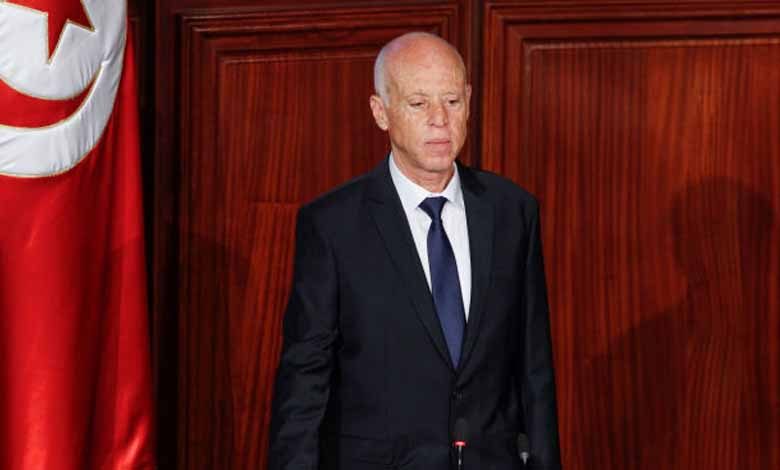Tunisian President describes IMF conditions as “a return to feudalism”… Why?

While he has on several occasions affirmed his categorical rejection of the IMF’s conditions, which he said affect the forces of Tunisians and harm the poor classes, Tunisian President Kais Saied described the conditions of the Fund as “a match that flares up alongside highly explosive materials”.
During a telephone conversation held on Saturday between him and French President Emmanuel Macron, Saied recalled the bloody events that killed hundreds of martyrs on January 3, 1984, when subsidies on grains and their derivatives were lifted, considering that civil peace is not a price.
He pointed out that just as justice must prevail within States, it must also prevail in international relations, because all of humanity yearns for a new stage in its history in which justice, freedom, security and peace prevail, while those close to Said affirm that he is trying to rid Tunisia of the dominance of the current global financial economic system, towards another system based on equal opportunities and respect for the rights of States.
According to a statement issued by the Tunisian presidency, the conversation dealt with other issues, including the issue of irregular migration. The President of the Republic stressed that solutions cannot be security-only, after experience proved that they are not effective, and that Tunisia is no longer only a transit zone, but also a destination for many immigrants who settled illegally in the country.
The statement noted that the economic and financial difficulties experienced by Tunisia were addressed; Due to the failed choices of the past decades, and in the past decade in particular, along with the rampant corruption, the smuggling of Tunisian people’s money abroad.
The position of the presidency is in line with the Tunisian Labor Union, the largest trade union organization in the country, which rejected the conditions of the Fund, namely that the Tunisian authority should reduce subsidies for goods and energy, as well as the salary deduction for government employees.
On Friday, Saied proposed raising taxes on the rich, which he said “could be a substitute for difficult social reforms”.
The Tunisian government reached a tentative agreement in October with the International Monetary Fund (IMF) to obtain a $1.9 billion loan in exchange for reduced subsidies, a reduction in public sector salaries, and reforms within state-owned enterprises.
Ratings agencies have warned that Tunisia will face a possible sovereign default unless it receives the loan, which is also expected to lead to further bilateral funding flows.
“The IMF said Tunisia needs to move its fiscal position onto a more sustainable path, after earlier expressing concern about the size of civil servant pay, subsidies, a low tax base, and support for unprofitable state-owned enterprises.”
Saied has described the financial reforms provided for in the agreement as “diktats” that cannot be passed and the loan paid without the consent of the Tunisian president.












